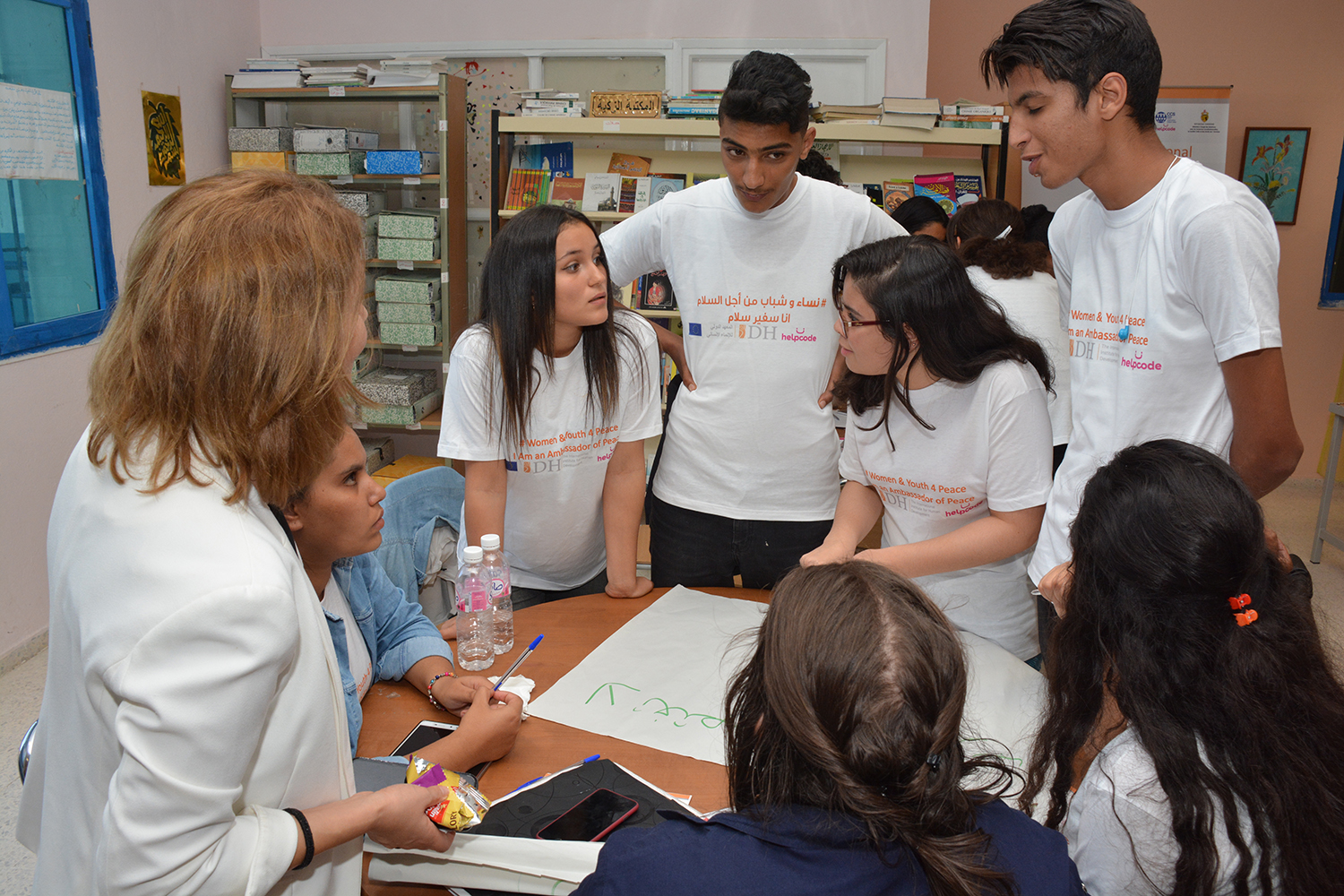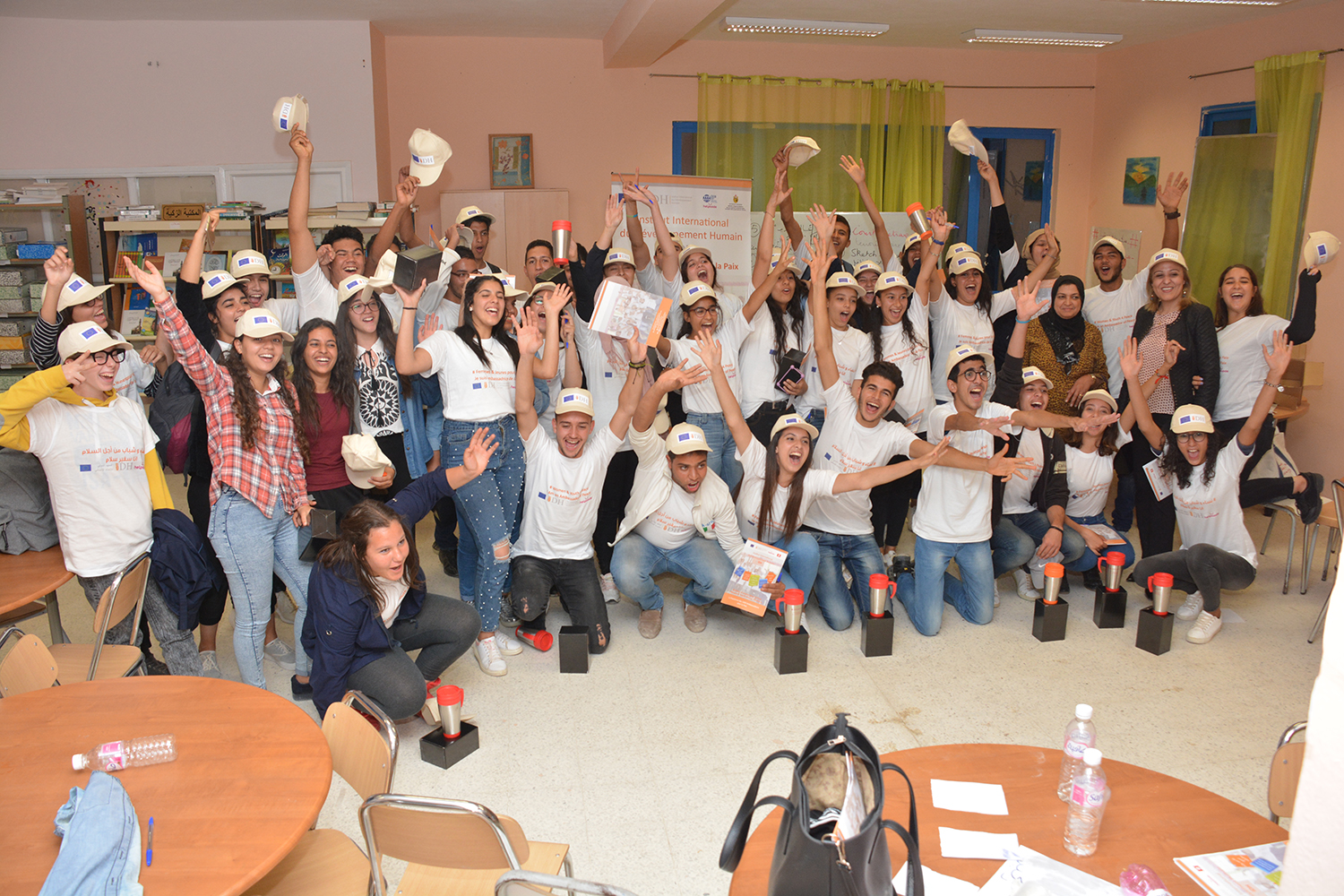Women and youth for peace in Tunisia
General objective
Bringing a positive change within Tunisian society through women and young people
Specific objective
Strengthening local networks of women for developing a culture of peace, and creation of a participatory dialogue network to better understand the phenomenon of radicalisation. Promoting a counter-narrative addressed to young people at risk of radicalisation.
Expected results
Development of awareness campaigns against violent extremism in places where young people socialise and in schools (12 communities, 20 local women leaders). Mitigating the risk of radicalisation among young people through increase in youth employment.
About the project
In recent years, the phenomenon of radicalisation among young Tunisians, especially in the metropolitan area of Tunis and in the south of the country, has seen an exponential increase, demonstrated by aggressive propaganda in favour of Islamic extremist groups on social media. Tunisia is one of the 10 countries with the highest number of tweets in support of ISIS. There are also many young foreign fighters who leave Tunisia to go and fight in Iraq, Syria and Libya.
The political instability that had prevailed in the country following the 2010-11 revolution, and a worrying increase in unemployment have resulted in an increase in migratory flows. According to 2016 data, unemployment affects 15.4% of the population (12.5% for men and 23% for women), and has increased to 31.2% among graduates (20.3% men, 40% women).
In this context, the initiative aims to promote the women’s socio-economicempowerment and gender equality, thus enhancing the crucial and active role that women and youth can play against radicalisation and violent extremism through training opportunities. These training opportunities help them in learning all about sustainable businesses and making their integration in the inclusive labour market easier.
The intervention aims to prevent radicalisation through the following priority areas:
- prevention of conflicts;
- Involvement of communities, through the development of participatory strategies with civil society and local communities;
- Strengthening the ability of young people by promoting participation in decision-making processes at local and national levels;
- Use of internet and social media to communicate positive messages showing that change is possible.
Project costs
80.000€
Beneficiaries
- 500 donne attiviste
- 500 giovani a rischio radicalizzazione (dai 15 ai 29 anni, per il 14% maschi)
Project backer
EU in Tunisia
Partners
- Scuola di Montesole
- IDH (International Institute of Human Development)
- Terre des Hommes
Project leader

Martina Venzo
Project leader





